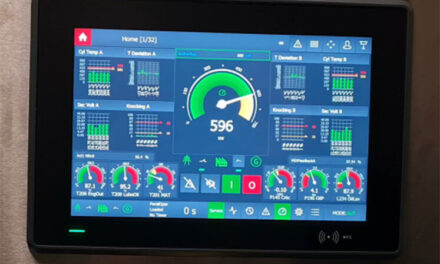As the labour force continues to be faced with challenges and issues in varying fields of industries, robots will soon become the most in-demand automated labour source. Robots refer to high-performance machinery that can automatically replicate some human functions. And as they make their way into various industries, there is now a growing need for robotic professionals who can build, operate, and service this machinery. According to the Robotics Industry Association, the demand for robotics engineering continues to increase, with automotive, food, and manufacturers driving the largest growth in demand. Here’s how robotics engineering is booming.
More Automation Requires Robots and Jobs
While it’s true that robots could be replacing the labour force, the demand for automation has also given rise to new roles in the robotic field. As more and more robots enter the workforce, companies that utilise these machines are faced with a shortage of workers who have skills that can program and maintain this very complex machinery. Because of this, several community colleges and universities are now adding curriculum that’s centred around robotic manufacturing aimed towards adult learners and undergrads.
The increasing demand for robotics professionals came from robotics staples such as the manufacturing industry, most especially those companies that are involved in producing cars and military applications. And as robots become smaller, smarter, and more mobile, experts predict growth in some other fields as well, such as in education, human assistance, home entertainment, and security.
COVID
From disinfecting hospitals and public spaces to offering delivery services, robots have become a game-changer in the Covid-19 pandemic. Both big and small companies are now relying on robotics to improve their social distancing measures and minimise the number of staff who must physically report for work. Robots are also used to carry out tasks that workers cannot do at home. For instance, Walmart is utilising robots in cleaning its premises. In South Korea, robots have been used to take temperatures and dispense sanitisers.
The automation of laboratory and supply chain is an emerging industry that is often overlooked. By automating the slow process of Covid-19 testing, which often relies on a small set of labs and specially trained workers, the delays that are currently being experienced in many parts of the world can be minimised. Although robots have already been used in various industries post-pandemic, Covid-19 has certainly accelerated the adoption of robotics in various fields, and this has led to a further increase in the demand for robotics engineers.
Great Salary and Job Vacancies
A robotics engineer holding a Bachelor of Science degree can earn an average of more than £60,000 per year, while a robotics technician holding an associate degree could earn an average of £45,000 per year. Having experience in the field of robotics, especially in the manufacturing industry could further elevate your opportunities in this field.
As the number of companies investing in robotics continues to increase, the demand for robotics professionals continues to grow as well as automation and control recruitment firms try and get them the best robotic engineers. Industries such as manufacturing, aerospace, agriculture, and finance have already invested millions into robotics and experts have predicted that this will continue to increase in the coming years.


